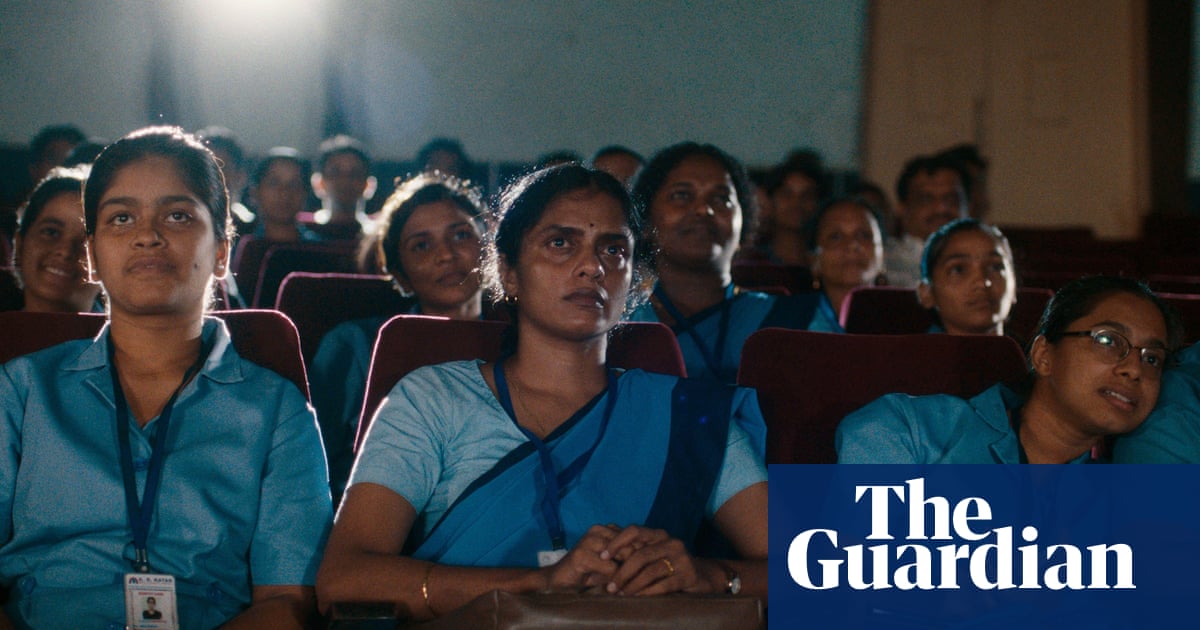“I wanted to show that women, when they are in a community, can really support each other and find strength,” she says. “There’s a lot of warmth in these relationships, and I wanted to explore that. It’s not just about romantic love, but also about the love and support we can find in our friendships and communities.”
All We Imagine As Light is a film that captures the essence of Mumbai, a city in constant flux, through the lives of its female characters. It is a story of resilience, strength, and the power of community in the face of societal expectations and challenges. Kapadia’s unique vision and storytelling have garnered critical acclaim and attention, making her one of Indian cinema’s rising stars.
“In India, women are often pitted against each other – mothers-in-law, daughters-in-law, sisters-in-law. We have a lot of soap operas like this. It’s really unfortunate. I think it serves a purpose to some people for women not to be friends. But as I’m growing older, I find myself relying more and more on women of all ages.”
Kapadia effortlessly shows kinship with other women. We joke about the perils of dating apps, sparked by Anu’s use of a “matrimony app” in the film. During Kapadia’s research, she drew inspiration from Agnès Varda’s Cléo from 5 to 7 and Chantal Akerman’s News From Home, shot in Paris and New York respectively. “Also the films of Claire Denis and Margaret Tait. I’m only naming women, because people are always naming men, but I’m not being dishonest, either.”
Was it challenging to make it as a female director in India? “I can’t say that my identity as a woman has caused me problems, because I’m much better off than many others,” she says. “I had access to education from a young age. My family was really supportive of my career. I speak English well.”
But there have been obstacles. In 2016, Kapadia was disqualified from a foreign exchange program because she had taken part in a students’ strike against the proposed appointment of an actor turned politician as the chair of her film school. She also lost her scholarship, which had been awarded to students at the top of their class. These events were captured in her 2021 documentary, A Night of Knowing Nothing.
“Public university is a double-edged sword,” she says. “On one hand, the university is affordable and it allows for many people to have access to education, but it’s also then controlled by the government and that can lead to problems.”
She passionately speaks about the importance of access to the arts, calling it her “biggest frustration” when an artistic education depends on income: “I think opportunity, and having access to opportunity, is the only way we can move forward as humanity.” She believes artists from different backgrounds can produce more relatable stories: “And if you don’t relate, at least you’ll see something different, something that exposes you and perhaps makes you more empathetic to people who are not like you. Otherwise, we’ll just be eating each other, completely ghettoized into our little bubbles.”
Despite its success, All We Imagine As Light was snubbed by the Film Federation of India, the organization responsible for selecting the country’s official entry to the Oscars, which chose a more conventional Bollywood film instead. “The other film that got selected is a nice film,” she smiles. “So I’m happy.”
I ask her if artists have the freedom to do and make what they want in India. “Do artists ever have the freedom to do what they want?” she says. “On paper, the industry is free. But now, a lot of films that align with the government’s agenda are being given subsidies, like tax benefits. They get wider releases, cheaper tickets. So certain films get more attention than others.”
Bollywood actor Ayushmann Khurrana has said that Kapadia will inspire others to “follow in her footsteps and think big”. Does she agree? “We’ve been making films for a long time in India,” she says. “We have Bollywood, Tamil cinema, Malayalam cinema. Now, festivals are finally taking interest, so I guess the link between the east and west is opening up more. I’m just one small part of that.”
All We Imagine As Light is set to be released in the UK on 29 November
